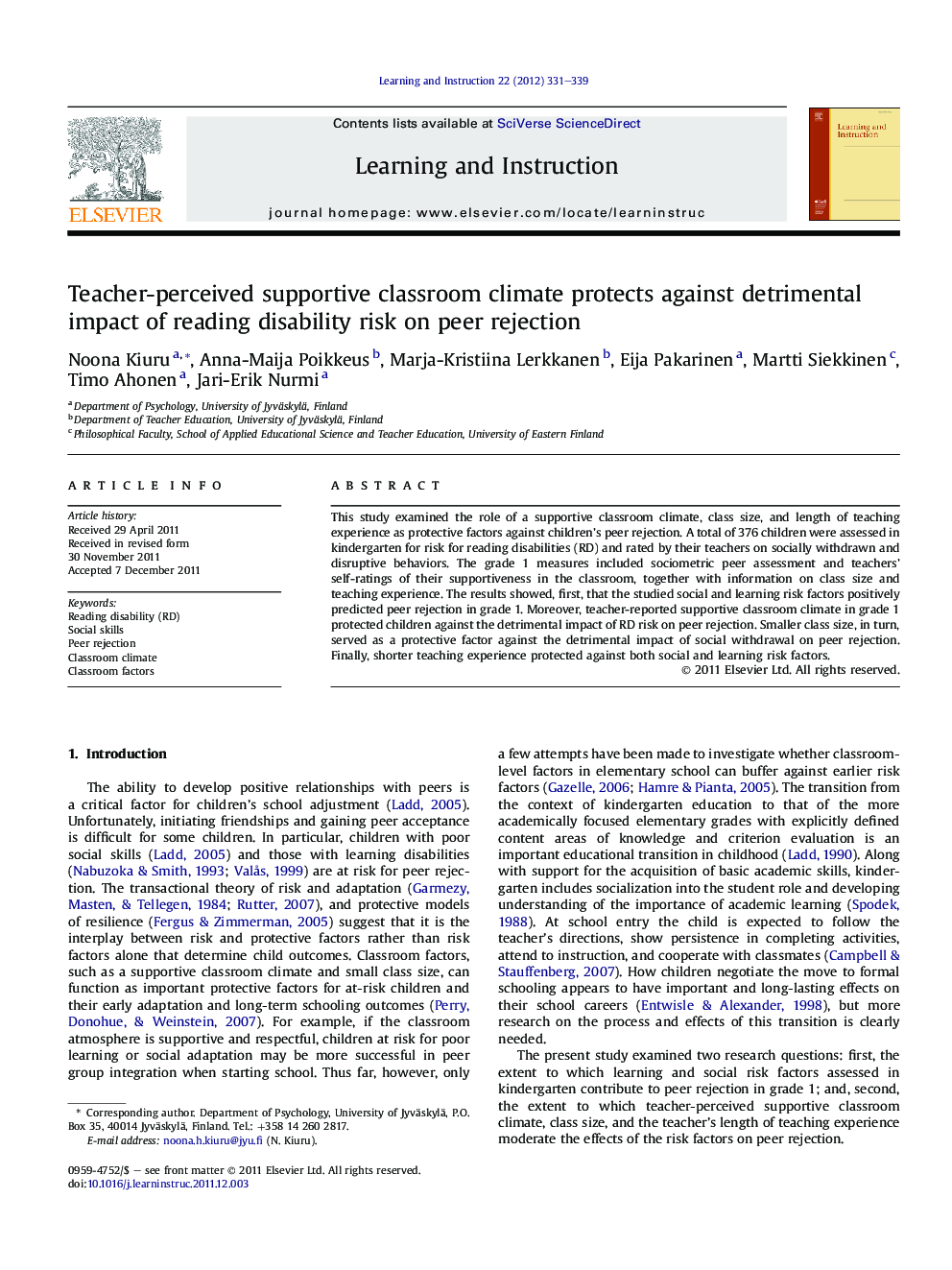| Article ID | Journal | Published Year | Pages | File Type |
|---|---|---|---|---|
| 365703 | Learning and Instruction | 2012 | 9 Pages |
This study examined the role of a supportive classroom climate, class size, and length of teaching experience as protective factors against children's peer rejection. A total of 376 children were assessed in kindergarten for risk for reading disabilities (RD) and rated by their teachers on socially withdrawn and disruptive behaviors. The grade 1 measures included sociometric peer assessment and teachers' self-ratings of their supportiveness in the classroom, together with information on class size and teaching experience. The results showed, first, that the studied social and learning risk factors positively predicted peer rejection in grade 1. Moreover, teacher-reported supportive classroom climate in grade 1 protected children against the detrimental impact of RD risk on peer rejection. Smaller class size, in turn, served as a protective factor against the detrimental impact of social withdrawal on peer rejection. Finally, shorter teaching experience protected against both social and learning risk factors.
► Social and learning risk factors positively predicted peer rejection. ► Supportive classroom climate protected against the negative impact of RD risk. ► Smaller class size protected against the negative impact of social withdrawal. ► Teacher's shorter experience protected against the negative impact of social and learning risk factors.
